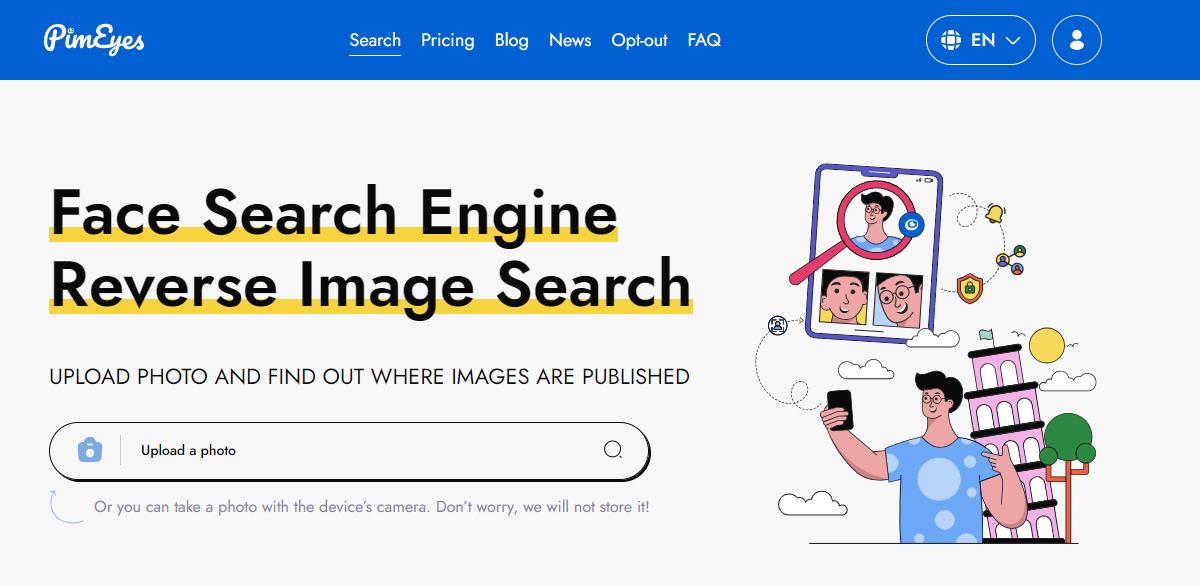
15 Free PimEyes Alternatives (Image Search Tools)
Posts by Colin TanMarch 12, 2024
When we talk about 15 PimEyes Alternatives, it’s not just about finding another tool; it’s about exploring a world of possibilities in facial recognition and image search.
PimEyes has made a significant mark in this arena, offering users the ability to search for faces across the internet.
But as with any tool, there’s always room for variety and different functionalities.
Some users might be seeking more advanced features, while others might be on the lookout for a more budget-friendly option.
This article dives deep into 15 alternatives to PimEyes, shedding light on their unique features, benefits, and how they stand out.
Whether you’re a professional in the field, a curious individual, or someone looking to switch platforms, this guide aims to provide insights that will help you make an informed decision.
So, let’s embark on this journey and discover what the world of facial recognition tools has to offer beyond PimEyes.
Factors to Consider When Choosing 15 PimEyes Alternatives

Choosing the right facial recognition and image search tool goes beyond just picking an alternative to PimEyes.
It’s about understanding your specific needs and ensuring the tool you select aligns with them.
Here are some crucial factors to keep in mind as you explore the 15 PimEyes alternatives:
Accuracy and Reliability: The primary purpose of these tools is to identify faces or images. Hence, the accuracy of search results is paramount.
Consider how often the tool provides correct matches and how it handles false positives.
Privacy and Data Protection: With the increasing concerns about data privacy, it’s essential to choose a tool that respects user data.
Look for platforms that have clear privacy policies, use encryption, and don’t store your search images without consent.
User Interface and Ease of Use: A tool can have all the advanced features, but if it’s challenging to navigate or understand, it might not be the best choice.
Opt for platforms that offer intuitive interfaces and provide clear instructions.
Cost and Pricing Models: Budget constraints are real, and it’s essential to find a tool that offers good value for money.
Compare the pricing models of different alternatives, considering any free trials, subscription plans, or one-time payment options.
Additional Features: While the core functionality might be facial recognition, some tools offer added features like image editing, advanced search filters, or integration with other platforms.
Depending on your needs, these can be valuable additions.
As you delve into the list of alternatives, keeping these factors in mind will ensure you find a tool that not only serves as a PimEyes alternative but also enhances your image search experience.
List of 15 Best PimEyes Alternatives in 2024
1. Social Catfish
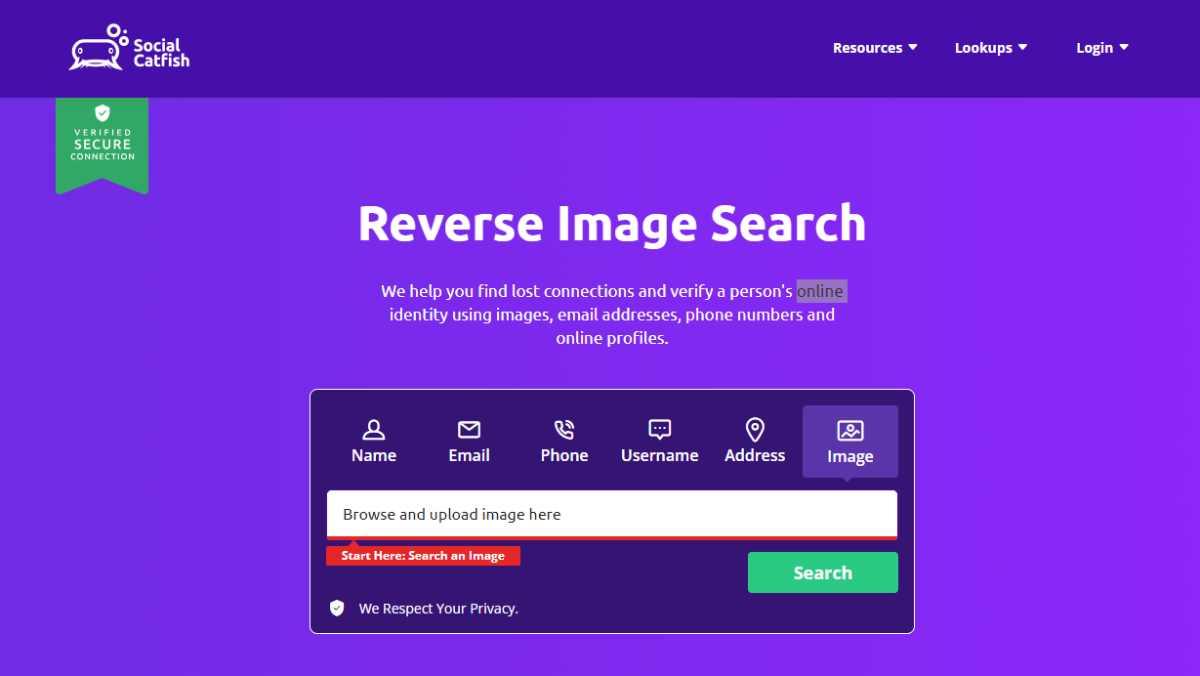
A dedicated platform that specializes in reverse image searches, particularly for social media profiles.
It’s designed to help users verify the identity of people they meet online, ensuring that profile images aren’t being misused.
With a focus on safety and preventing catfishing, Social Catfish is a reliable tool for personal and professional use.
2. TinEye
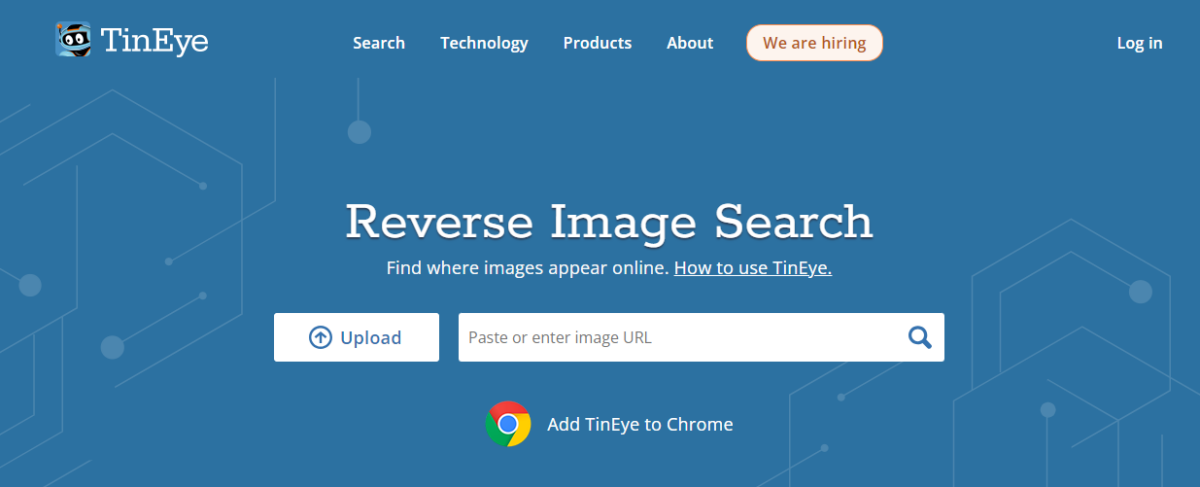
TinEye is a renowned reverse image search engine that can locate duplicates, modifications, or higher-resolution versions of photos.
It offers a handy Google Chrome plugin and a mobile app.
One of its standout features is that it doesn’t save the images you search for, ensuring user privacy.
Its distributed crawling system actively scours the web for new images.
3. Pixsy
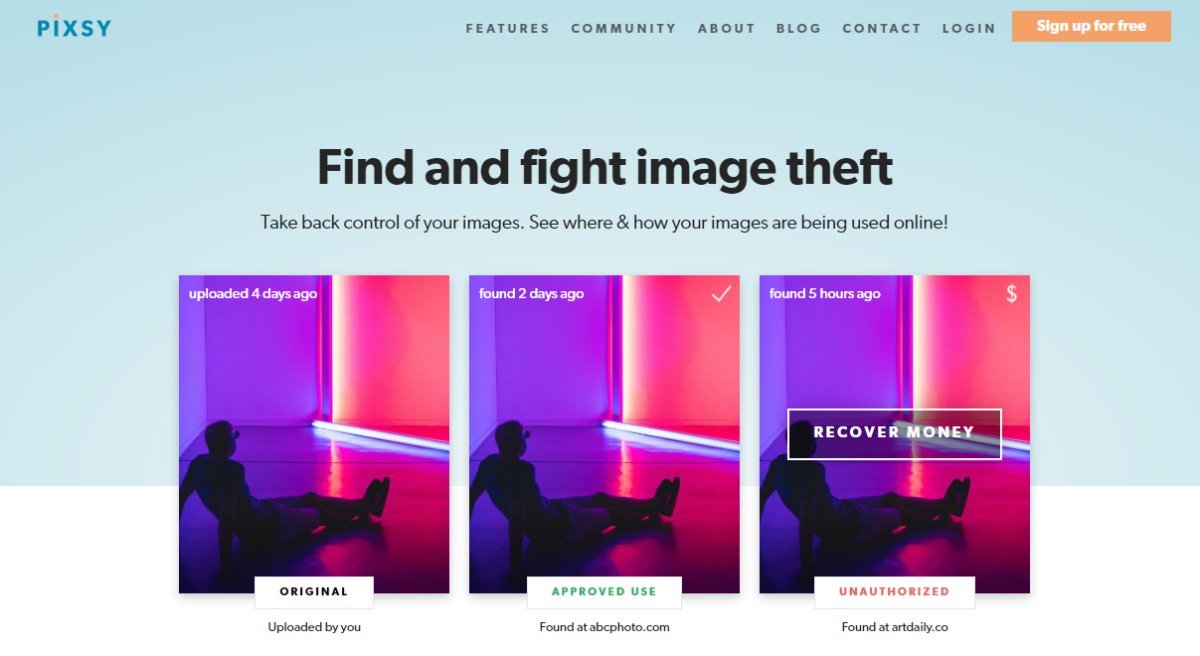
With a strong emphasis on image theft protection, Pixsy offers a face recognition system to locate pictures containing user faces online.
It’s not just a reverse image search engine; it’s a tool focused on image and photo theft, ensuring creators get their due credit.
4. Ximilar
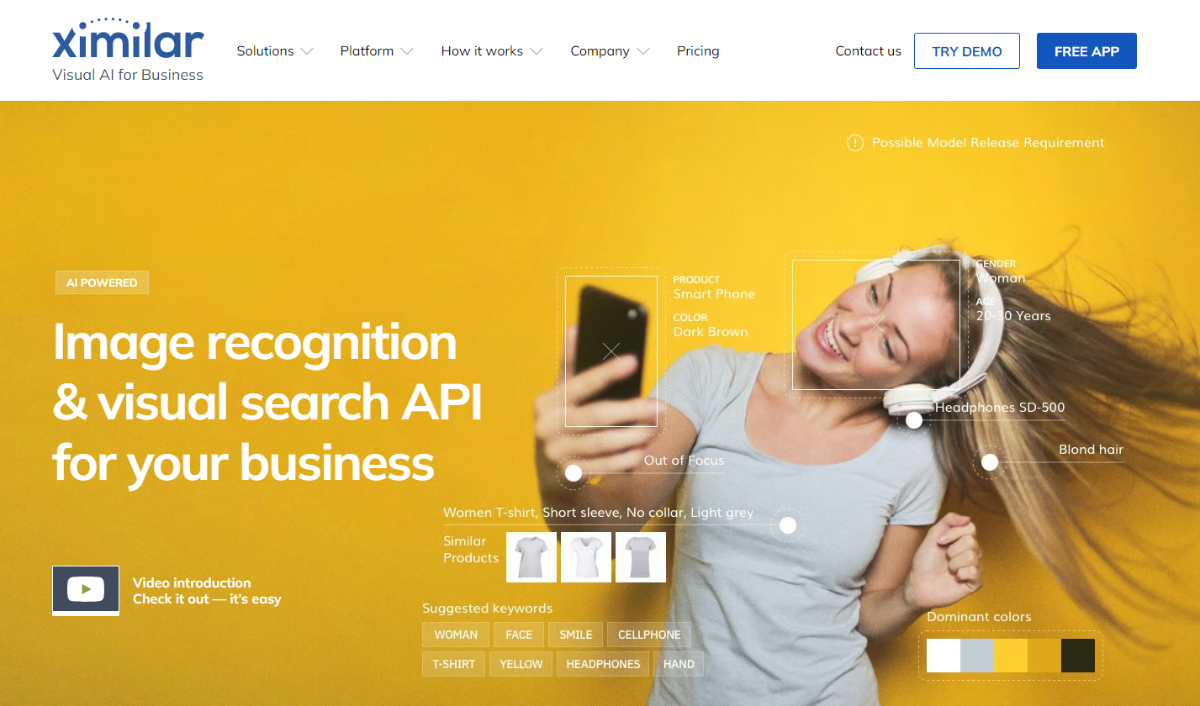
Ximilar is a powerful AI-driven visual search tool suitable for industries like real estate, fashion, and e-commerce.
Beyond basic image searches, it offers advanced photo tagging and recognition features.
While its free plan is handy, the paid options unlock more capabilities.
Though it might have a steeper learning curve for beginners, its versatility makes it a noteworthy PimEyes alternative.
5. Google Lens
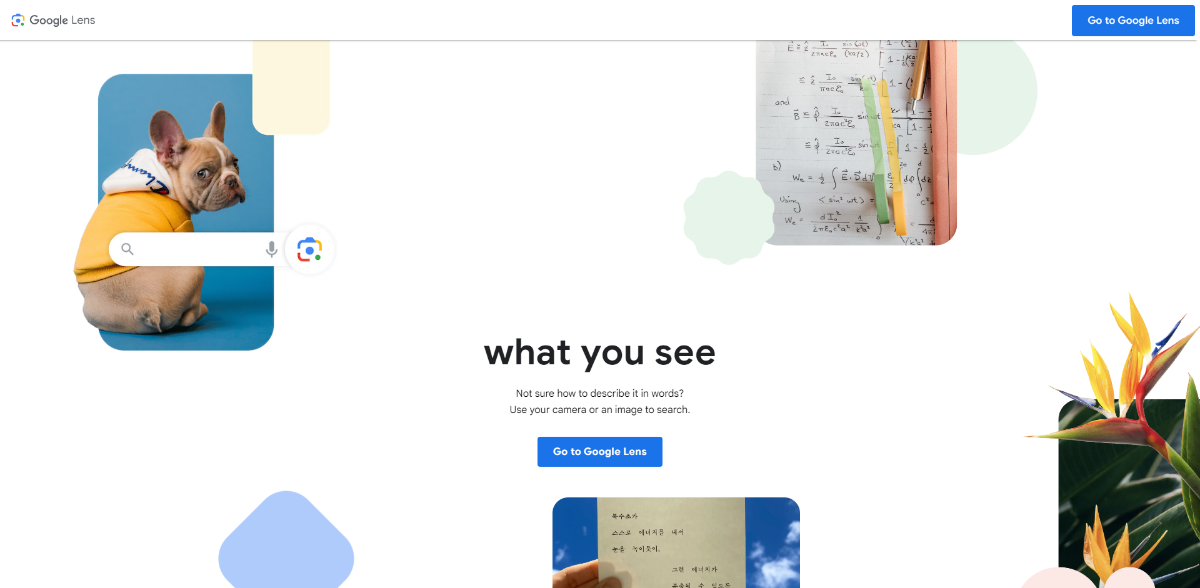
A product of Google, Google Lens can identify any word or image of an object through a smartphone.
Once it detects the content, it provides relevant information about the object.
It’s a versatile tool available on the Google Play Store, making visual searches a breeze.
6. Reverse Image Search
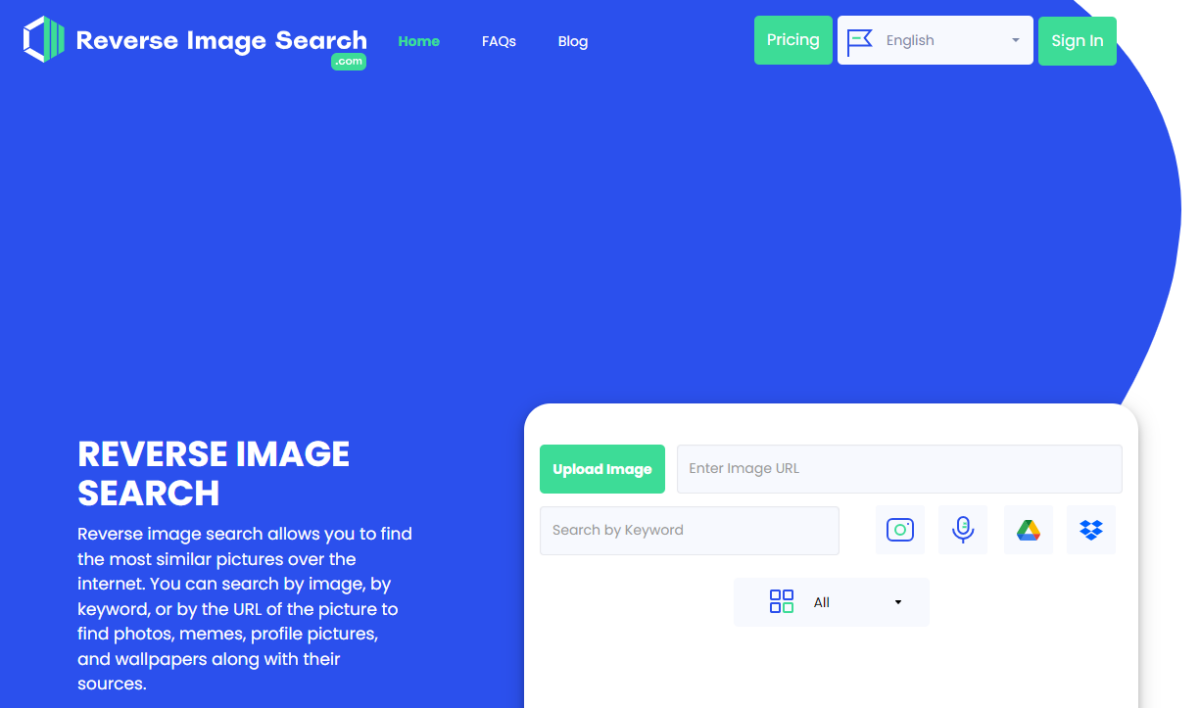
This platform is dedicated to helping users locate the original source of a picture.
It’s especially useful for content creators looking for images available for free use.
For iOS users, it’s available on the Apple App Store.
7. SauceNAO
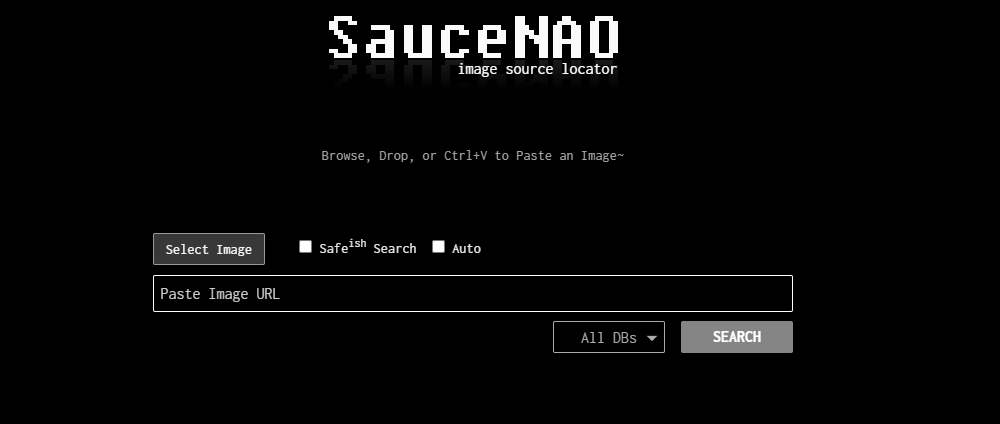
SauceNAO operates by comparing pixels in the original image to those in all other photos on the internet.
It’s particularly adept at scanning social media and the broader internet for potential photos of the user, ensuring you know where your images are being used.
8. Reversee
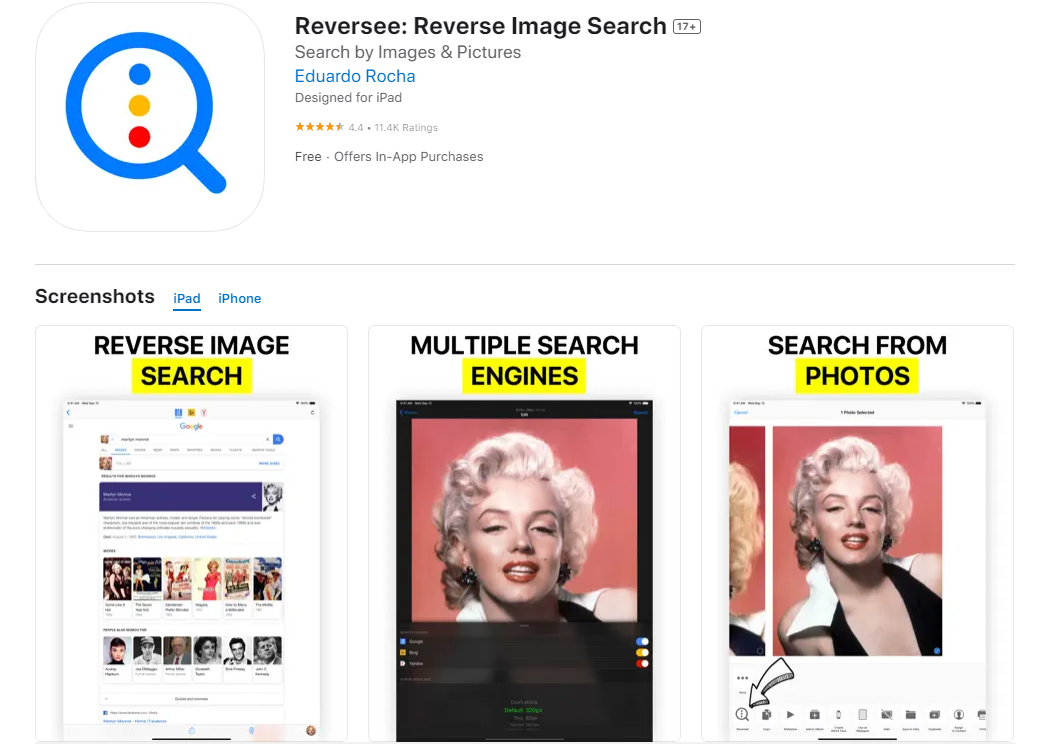
Reversee is a bridge between your iOS device and search engines that offer reverse image search.
By integrating with the iOS share menu, Reversee allows users to search for an image from various sources like Safari, Photos, and other apps.
It’s particularly useful for mobile users who want a seamless experience without the need to jump between apps or browsers.
9. Trace.moe
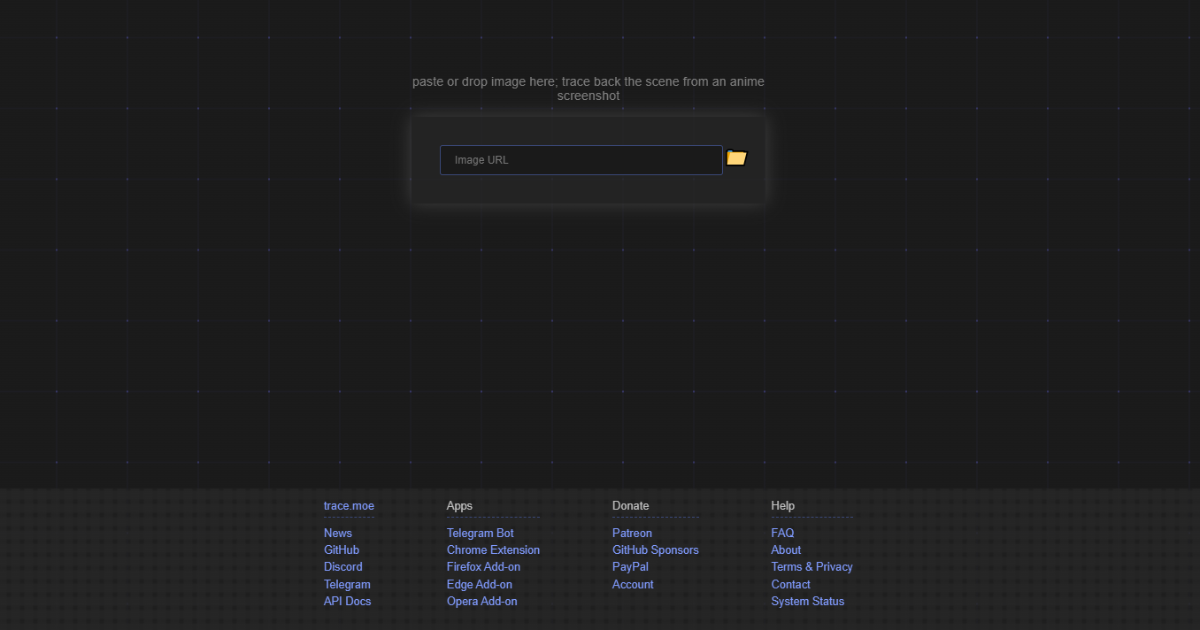
For anime enthusiasts, Trace.moe is a godsend.
It’s an anime scene search engine that uses advanced machine learning and computer vision technology to pinpoint scenes from an original anime, helping fans find their favorite moments.
10. Search by Image
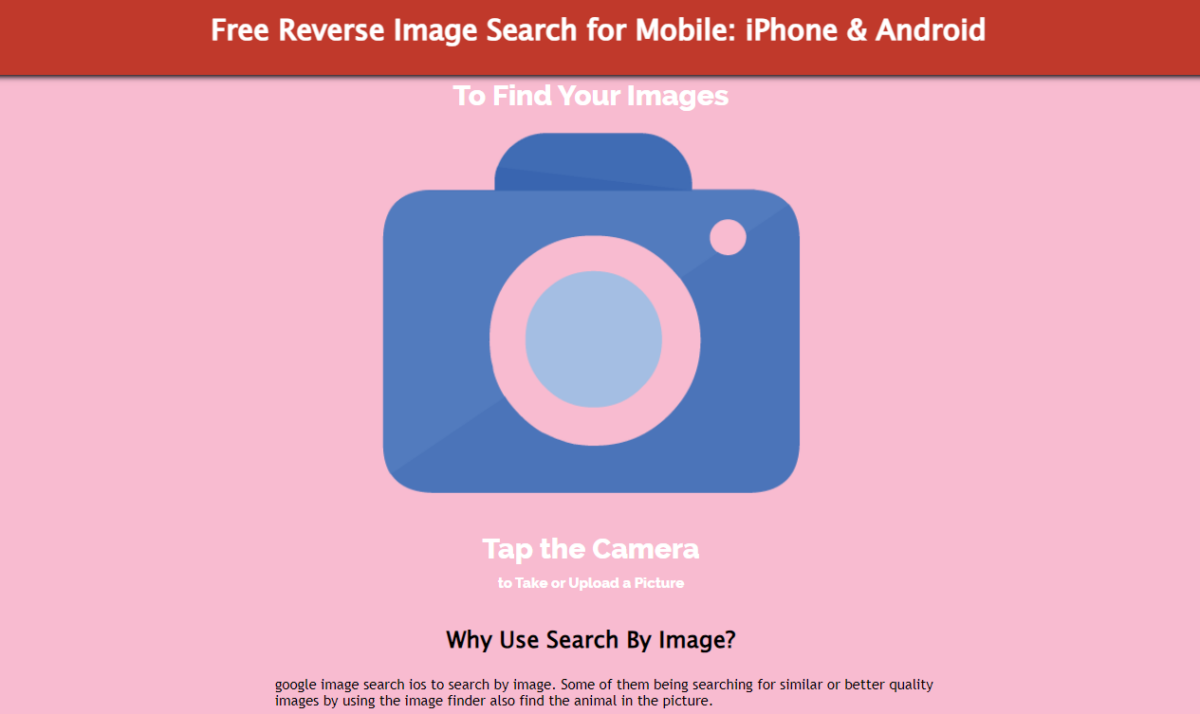
A dedicated platform to help users find lost or stolen photos on the internet.
It recognizes user pictures online and detects potential scammers using cutting-edge technology.
For Android users, it’s available on the Google Play Store.
11. Yandex Images
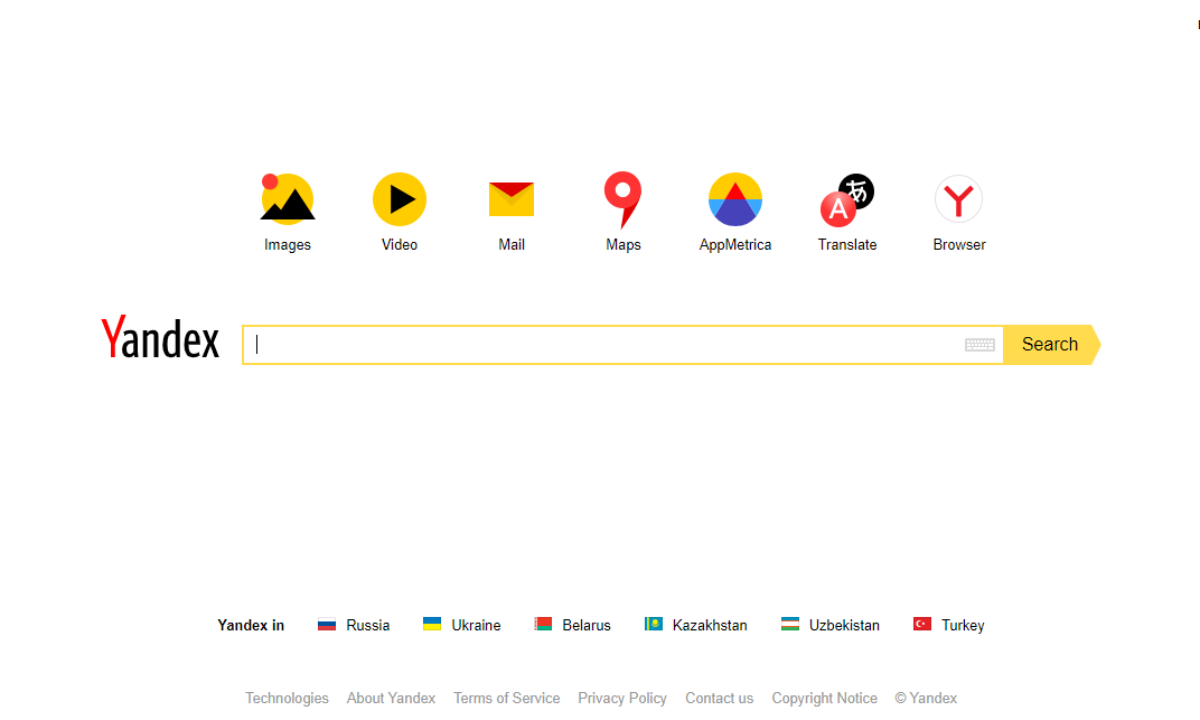
Yandex Images offers a comprehensive image search, similar to Google.
It’s particularly popular in Russia and some parts of Europe.
With its reverse image search feature, users can find similar images or the source of a particular photo.
12. Bing Visual Search
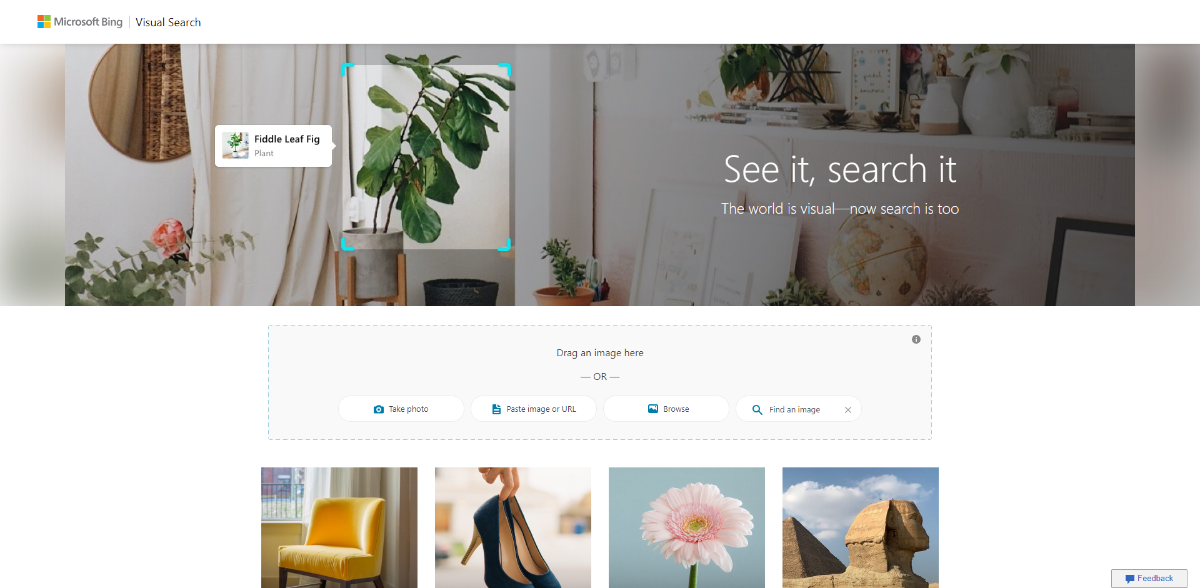
Bing’s answer to visual searches is that this tool allows users to search the web using images.
It’s integrated with Microsoft’s AI capabilities, making it a powerful tool for finding similar images or understanding the context of a picture.
13. Karma Decay
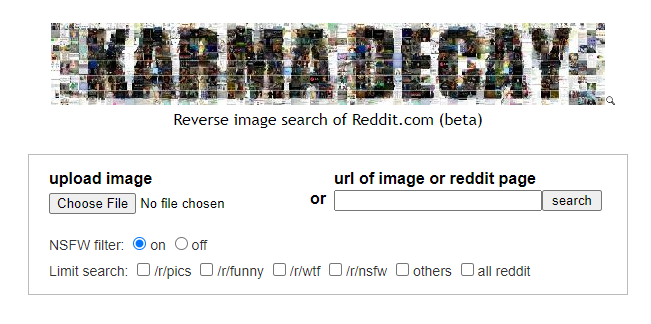
Primarily used for Reddit, Karma Decay helps users find reposts.
It’s a reverse image search for Reddit, ensuring that content isn’t repeatedly posted, helping maintain the platform’s content quality.
14. Berify
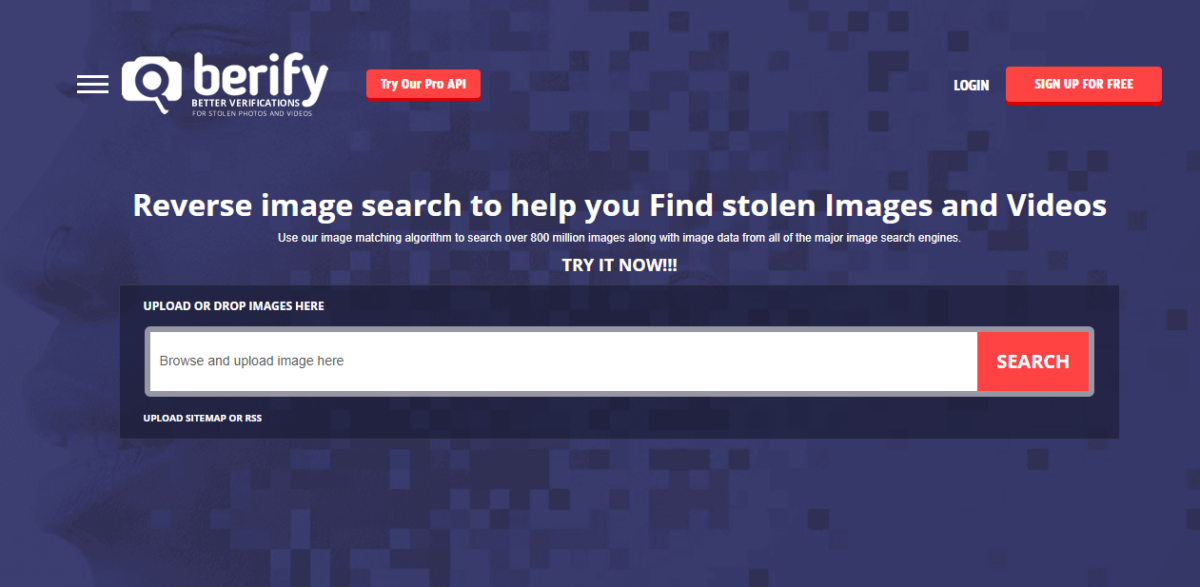
Berify is another reverse image search tool that specializes in tracking down stolen images.
It’s used by photographers, models, and everyday users to ensure their content isn’t being misused online.
With a vast database, it’s efficient in locating image theft.
15. Face++
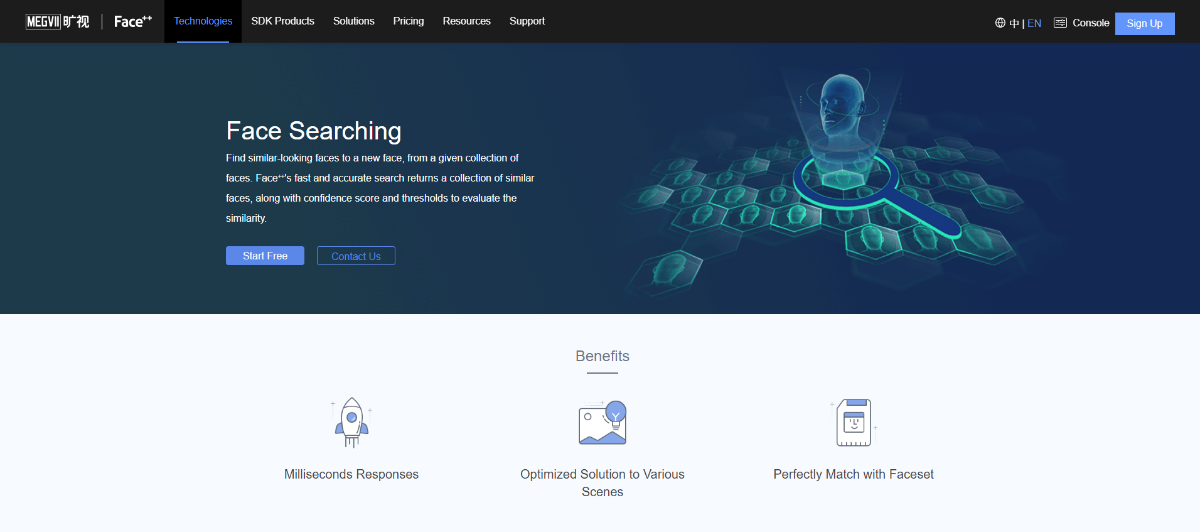
Face++ is a high-end facial recognition platform that offers advanced tools for developers.
It’s not just about finding similar faces; it provides attributes like age, emotion, and even beauty scores.
With its robust API, it’s a favorite among developers looking to integrate facial recognition into their applications.
These alternatives cater to a variety of needs, from personal safety to professional content protection.
Depending on your specific requirements, you can choose the one that aligns best with your goals.
Frequently Asked Questions (FAQs)
Why Are Facial Recognition and Image Search Becoming so Popular?
The digital boom has led to an influx of visual content online.
Facial recognition and image search tools help users verify the authenticity of images, trace their origins, and ensure online safety.
Additionally, businesses utilize these tools for targeted marketing, security, and enhancing user experiences, further propelling their popularity.
Are There Concerns Related to Using Facial Recognition Tools?
Yes, while these tools offer many advantages, they also come with ethical and privacy concerns.
The potential for unauthorized surveillance and data breaches are significant issues.
Misidentification is another concern, especially in critical sectors like law enforcement.
It’s vital for users to choose platforms that prioritize privacy and data security.
Can These Tools Be Used for Professional Purposes?
Absolutely.
Media companies might use them to track copyrighted images, law enforcement agencies for suspect identification, and businesses for targeted advertising or security.
However, professionals should ensure their use complies with relevant laws, especially concerning data protection and privacy.
How Accurate Are Facial Recognition and Image Search Tools?
The accuracy of these tools varies based on the technology and algorithms they employ.
Most advanced platforms boast high accuracy rates, especially when they utilize AI and machine learning.
However, factors like image quality, lighting, and angle can influence results.
It’s always recommended to use these tools as a starting point and verify results through other means when precision is critical.
Conclusion
Exploring the world of “15 PimEyes Alternatives” has been an enlightening journey into the capabilities and potential of facial recognition and image search tools.
As technology continues to evolve, the importance of having reliable platforms to verify, identify, and explore visual content becomes increasingly evident.
While PimEyes has set a benchmark in this domain, the plethora of alternatives available offers users a chance to find a tool that aligns perfectly with their unique needs.
Whether it’s for personal safety, professional endeavors, or mere curiosity, these platforms cater to a wide array of requirements.
As we wrap up this guide, it’s essential to remember that the right tool is the one that fits your specific needs and ensures your digital safety and efficiency.
